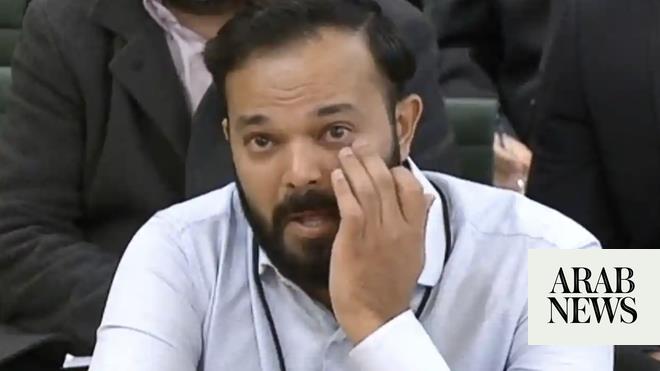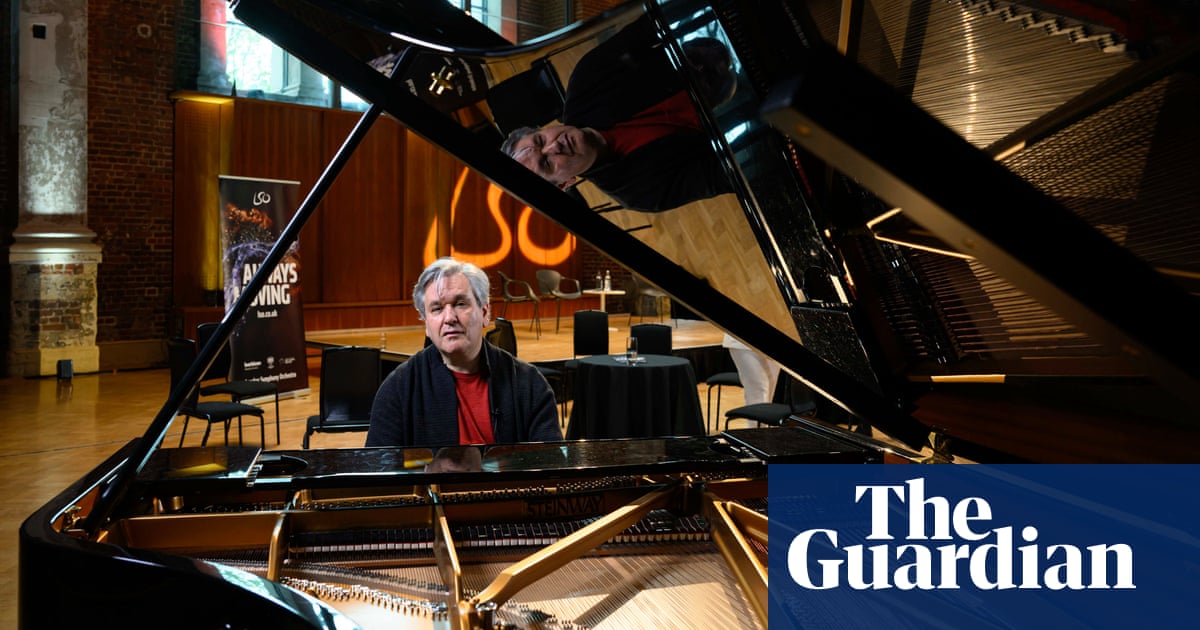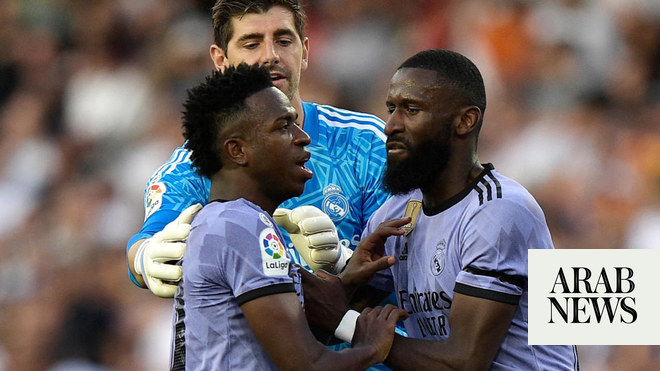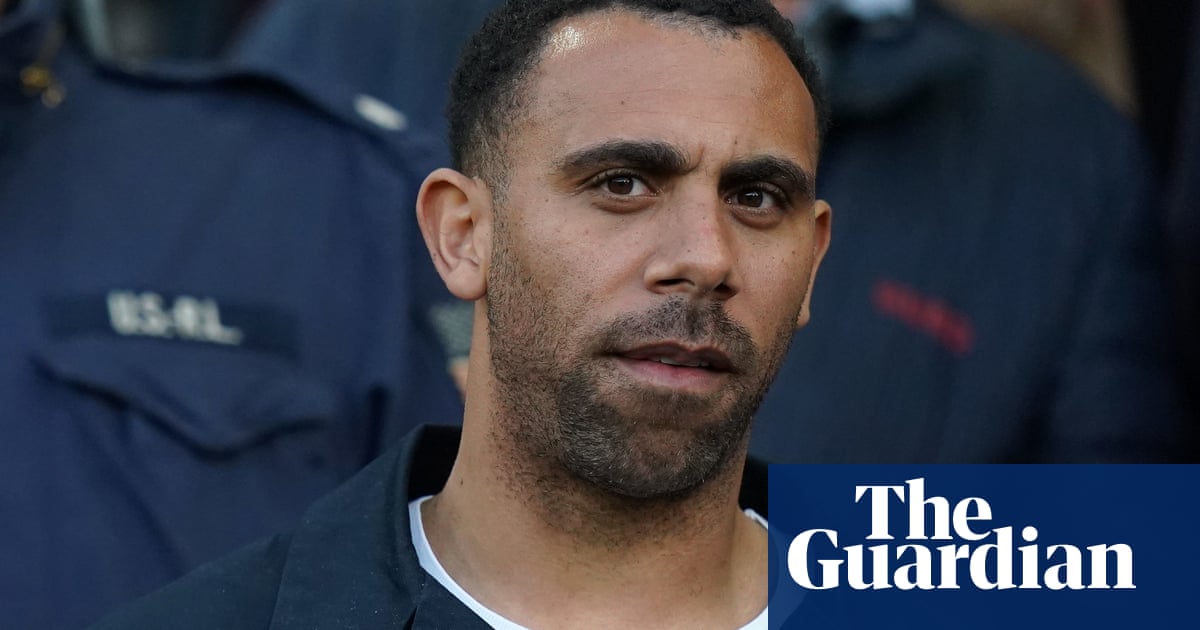
Huda Jawad said her son does not feel safe going to football practice after the racist comments directed at Black England players after Sunday’s Euro 2020 final
A petition launched by Jawad and two friends, calling for racism to be punished by lifetime bans from soccer grounds, attracted almost a million signatures in just 48 hours
LONDON: Racial abuse in English soccer is “intimidating” people to the extent that they avoid watching matches in stadiums, the co-founder of a UK anti-racism petition said on Tuesday.
Mother-of-two Huda Jawad, who lives close to Euro 2020 final venue Wembley Stadium, said during an interview on British TV that the toxic atmosphere created by some fans meant that until recently she was too afraid to watch a soccer match in public.
She also said her young son does not feel safe going to football practice since learning about the racist abuse directed at Black players Marcus Rashford, Bukayo Saka and Jadon Sancho after they missed penalties during England’s shootout defeat by Italy in Sunday’s final.
“As I was picking up my son from school … he said, ‘Mummy, we didn’t have a nice day today because we were talking about what the players have been experiencing, the racism they had leveled at them and it makes me feel sad and it’s not safe to go to football,’” she said.
“That really broke my heart. Football is a reflection of our society. We live a stone’s throw away from (Wembley) stadium, they’ve never been in, they don’t know what it looks like, they feel intimidated.”
Jawad helped to start a petition, titled “Ban racists for life from all football matches in England,” with anti-racism campaigner Shaista Aziz and friend Amna Abdullatif, under the collective name “The Three Hijabis.”
They went viral this month when they shared their experiences of watching England play Ukraine in the Euros quarter-finals together. Jawad said she realized then that football should be something that everyone can enjoy.
“(Football was) something that is not for me because I’m not welcome, and that’s really sad because the beautiful game is something that belongs to all of us,” she said.
“The England squad has really shown us what it’s like to be an inclusive team that belongs to everybody, that we’re all equal, that we all matter and we can all make a difference — this is for all of us to do something about.”
Jawad said that as soon as the three players missed their penalty kicks and England lost the final, she, Aziz and Abdullatif had predicted what would happen to them.
“The tragedy is after the final, the Three Hijabis were watching the match together a stone’s throw away from Wembley, and we said: ‘We know what is going to happen now: these young, Black players, these heroes, are going to be racially abused,’” she said.
Aziz said that racism in English football reflects a wider problem of societal racism in the country.
“Since we have put this petition up, lots of people have contacted us. Many people of color have shared similar stories,” she said.
“This is not just about football; racism is, sadly, part of society. Racism is part of the DNA of this country and society, and football is a reflection of society and we need to dig deep and do something about this.”
The petition, which calls on the UK government and English soccer authorities to introduce automatic lifetime bans for people who racially abuse players, has attracted more than 900,000 signatures in just 48 hours since going live after Sunday’s final.
UK Prime Minister Boris Johnson spoke with social media companies on Tuesday to urge them to do more to tackle online abuse. He also condemned the racist comments directed at the England players, which he said were coming from “the dark spaces of the internet.”
Johnson’s government has come under fire from some players and experts who say the Conservative prime minister and some of his closest colleagues have “fanned the flames” of prejudice and fueled the abuse of the players.












